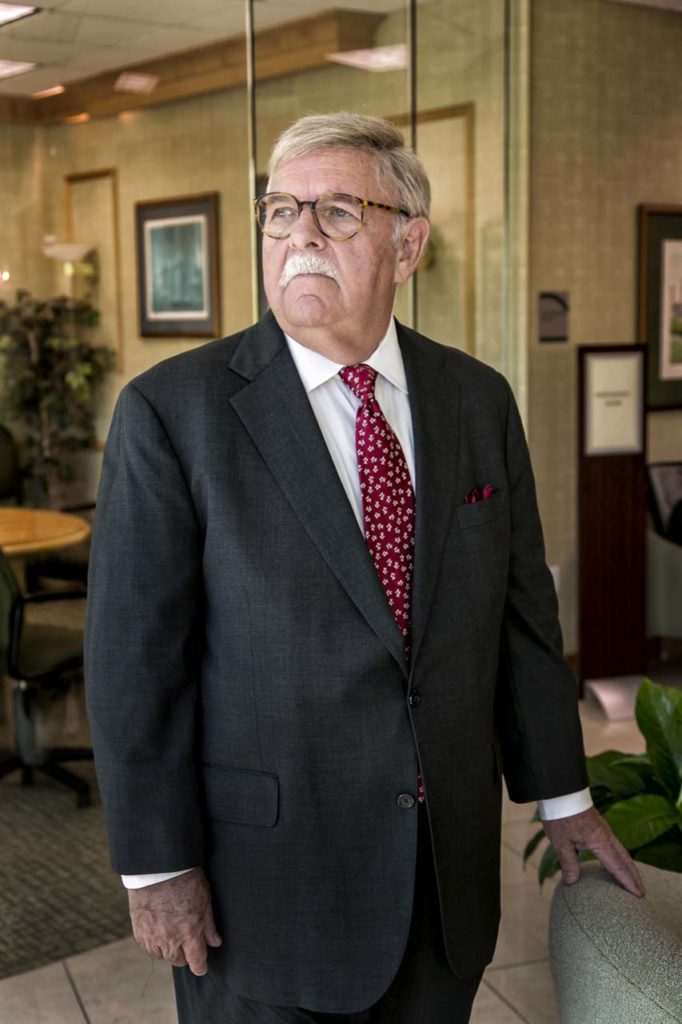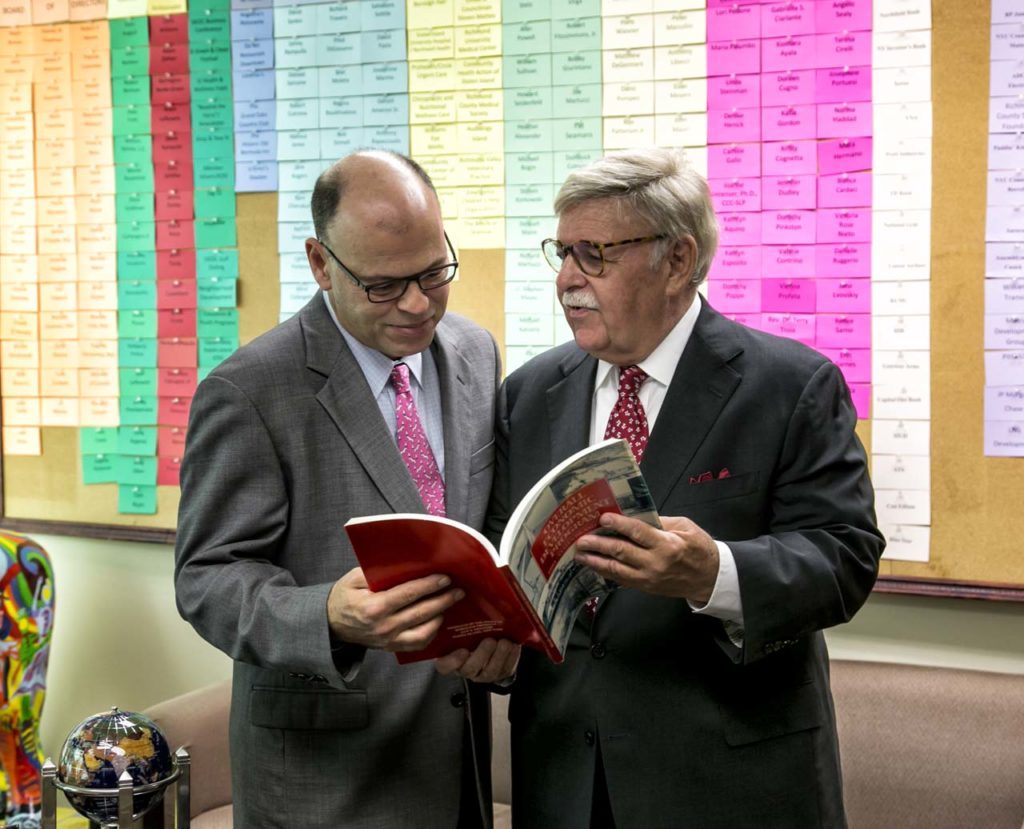A Professor emeritus at the college of Staten Island now shares wisdom with the local business community
By JENNIFER VIKS
Like many prominent Staten Islanders, Gene Garaventa a professor at the College of Staten Island, City University of New York did not originally plan to settle on the Island. For many, New York’s City’s fifth borough is often seen as a temporary stop maybe for a job, maybe for a year or two but the place, as we all know, tends to grow on people, and time and again, they end up putting down roots.

Garaventa, who hails from the Sunset Park section of Brooklyn, explained that for him, Staten Island “was going to be a temporary stop.” As it turned out, he and his wife ended up making it their permanent home.
But first, a look at the journey that led him to that post. Garaventa grew up in a working-class neighborhood, the only child of immigrant parents who instilled in him the importance of a work ethic. Although he respected his parents’ values and work ethic, in time he realized he was looking for something else. The problem was, he wasn’t sure what that something was.
“I went to college, and majored in business because I believed it would raise my socioeconomic status, and it was the path followed by virtually all of my peers,” admitted Garaventa. The absence of role models and guidance in high school precluded any ideas of majoring in areas such as science or mathematics. “As the children of immigrants and first-generation Italian-Americans, we chose academic paths we hoped would lead to immediate rewards.”
That path took an abrupt turn when he began spending his summers with his aunt and uncle, who lived in Italy. His uncle was a professor at the University of Genève. In part because his uncle had no children, and in part because Garaventa had recently lost his father, the two formed a deep and immediate bond. Garaventa attended his uncle’s lectures, interacted with his colleagues, and came to admire and aspire to his lifestyle.

After returning from one of his later trips to Italy, he enrolled in a doctoral program at New York University. He found work in management consulting, and this was when his career as an academic began. His first stops were posts as an adjunct professor at the New York Institute of Technology and St. John’s University. He then accepted a tenure-track position at the College of Staten Island in the fall of 1980, where he ended up working for more than three decades. “My 33 years at CSI turned out to be more exciting, challenging, and fun than I dared expect,” said Garaventa. “I had the good fortune to interact with students and colleagues who enriched my life; some have also become lifelong friends. I was lucky to find a career I truly loved. There was never a day when I did not want to go to work.”
While teaching at CSI, Garaventa served two terms as chairperson of the Department of Business, and for several year was the college’s liaison to the Staten Island business community. He was also awarded CSI’s Dolphin Award for outstanding teaching.
He retired in 2015. During his long tenure as a professor, Garaventa has witnessed a changing educational environment.
“Students today appear to suffer from more anxiety,” he observed. “Staten Island students face limited public transportation options, often requiring them to maintain automobiles, requiring them to work too many hours, which impacts on their academic performance.” The difficulty in finding meaningful employment is another cause of student stress, he added, especially if they are burdened by loans.

In response to the changing educational environment, Garaventa has taken to writing, seeking to make practical contributions to teaching management skills (as opposed to theoretical concepts), utilizing literature and drama (such as the plays Death of a Salesman and Glengarry Glen Ross) as case studies to encourage student participation in the educational process.
He believes that the education establishment needs to reconsider the traditional role of the four-year college as something beneficial to all students. Education is not one size fits all, he attests. “Students should be given guidance to assist in selecting which type of post-secondary education is best for them. Many jobs in technical areas go unfilled because job applicants lack required skills. Perhaps a greater emphasis on two year colleges or vocational training programs might help ameliorate this situation.”
As it turned out, academia was just the right path for Garaventa. In addition to his writing, he has served as a consultant to public and private organizations, specializing in organizational structure and behavior. For many years, he served as one of the editors of the National Civic Review. For the past 10 years, he has been a member of the board of directors of the Staten Island Economic Development Corporation (SIEDC). In the latter capacity, he has had the opportunity to observe the changing economic issues facing the borough economy.
“Obviously, big box stores and online merchants have posed serious problems, especially to retailers. Local businesses seek to cut costs by limiting services provided, ironically making online merchants more attractive,” noted Garaventa. This competition is a daunting, though not necessarily an insurmountable, challenge, he said. Merchants need to tap their creativity and attempt to carve out a niche market large enough to generate more income, but not large enough to attract competition from bigger firms. In addition to economic competition, Staten Island businesses are further handicapped, he said, by excessive taxes and government rules and regulations imposed by New York City and New York State, and Garaventa’s membership in the SIEDC provides him a forum to attempt to address issues that have impacts on local businesses.
Garaventa may be retired, but he remains busy. He and his wife, Anne, enjoy traveling, and they’re spending time exploring the less famous attractions of New York City. In addition, he said that he finally has time to read many of the books (he cites The Prince and The Divine Comedy as two prime examples) he “should have read” as an undergraduate, instead of relying on Cliff Notes.
College of Staten Island
2800 Victory Boulevard / 718.982.2000 / csi.cuny.edu


